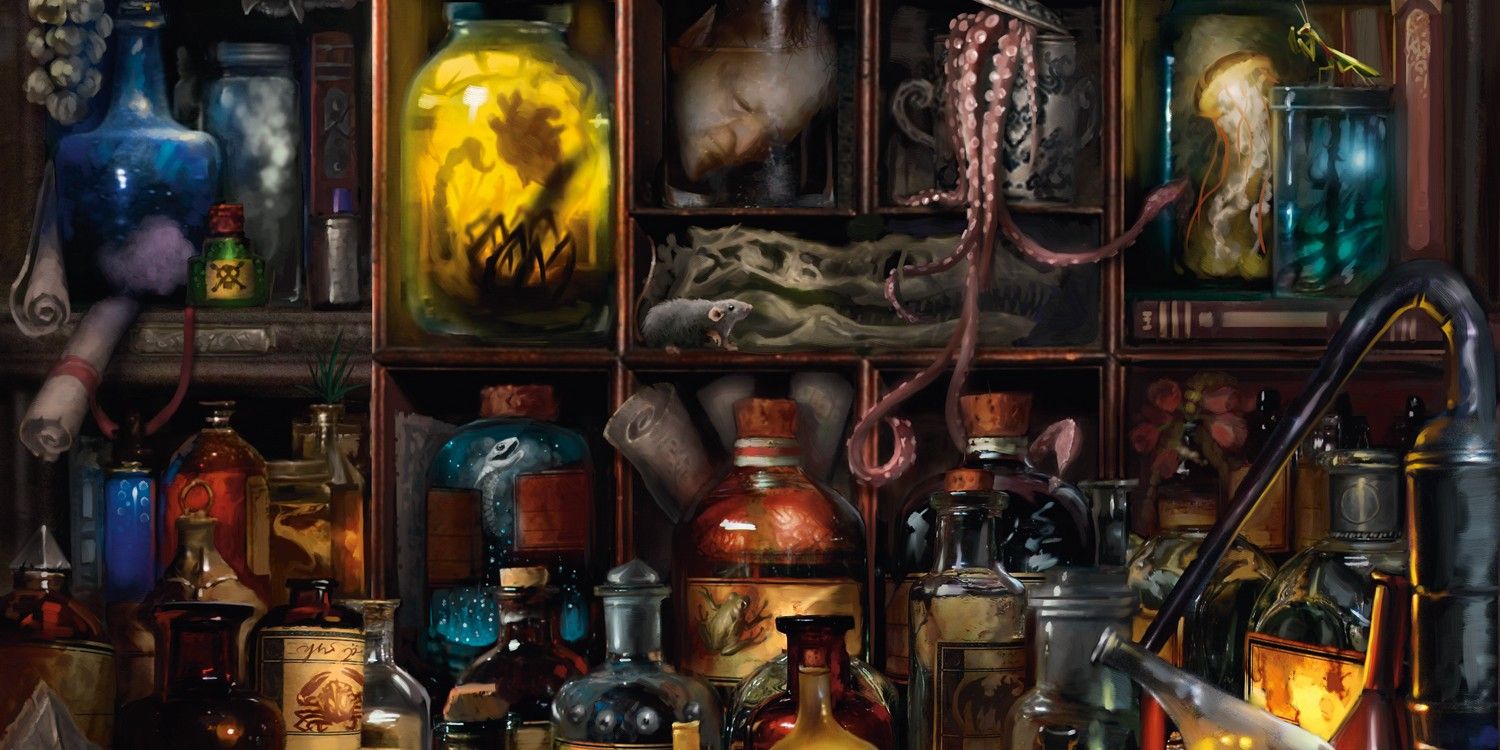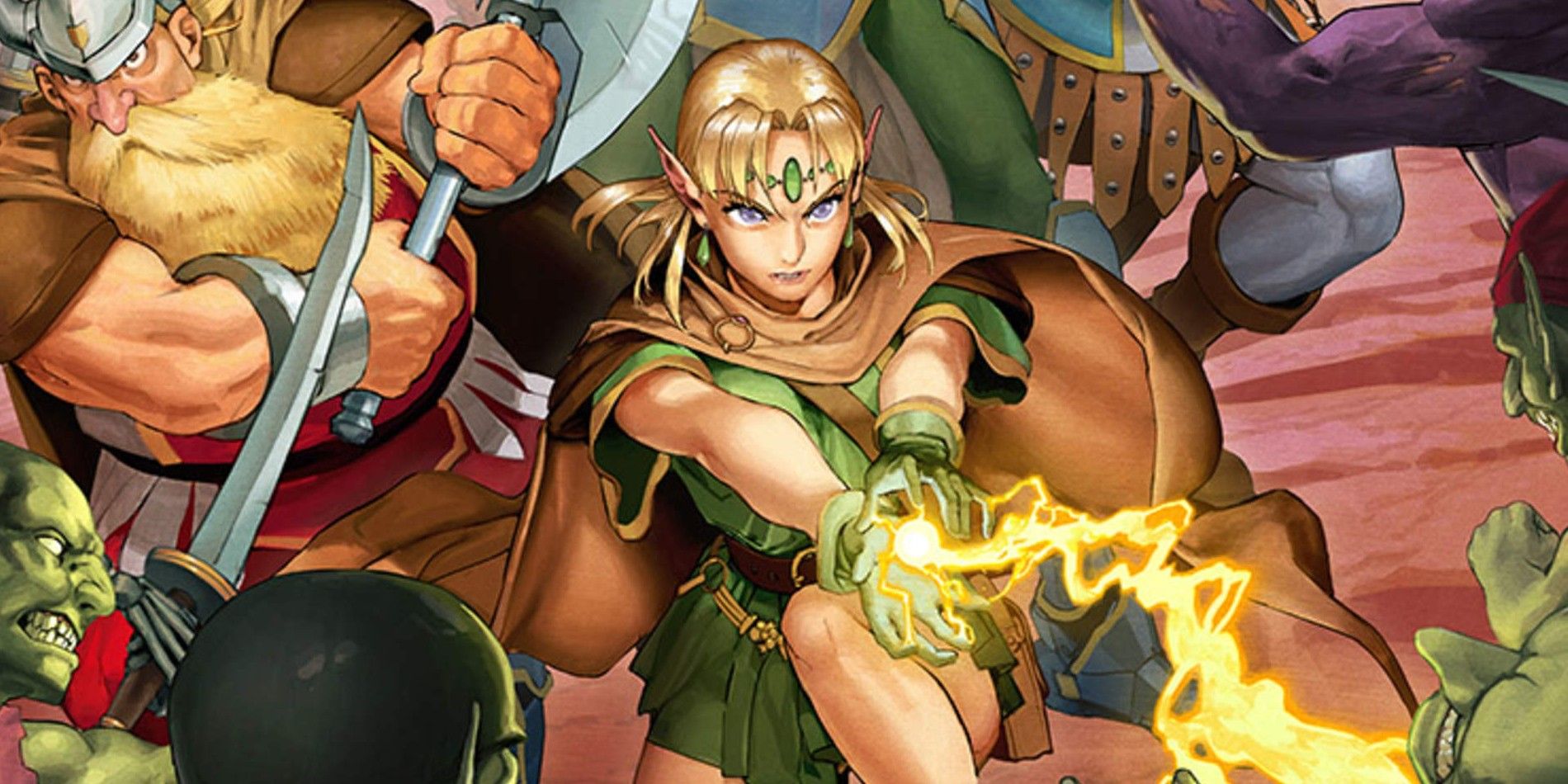The 5th edition Dungeons & Dragons Player’s Handbook mostly focuses on one potion type, the basic Potion of Healing, but this is just a drop in the bucket, or flask, of what D&D potions can offer players. Healing potions, including their advanced forms, can be a good fallback for a group whose healers are out of spell slots, or for desperate times where a non-caster needs to aid a wounded comrade. Potions are capable of much more, however, as the Dungeon Master's Guide contains an extensive list beyond the standard healing potion.
One major advantage of potions is that anyone can use them. High level spellcasters, with their diverse arsenal of powerful spells, can replicate nearly every potion effect, but for cases where a warrior is separated from the group’s casters, a Potion of Invisibility could become pivotal, and a Potion of Mind Reading could let a scout extract vital intel. Even when the full party is present, there is a tactical advantage to potion use due to the rules for Concentration.
The current edition of D&D limits spellcasters from stacking too many powerful buffs by attaching the Concentration requirement to many spells, a rule Dungeon Masters should always remind players of, for game balance. This prohibits them from casting another Concentration spell without losing focus on the first one. Taking damage could also cause the spell’s duration to end prematurely. Using a Potion of Speed, which duplicates the effect of the Haste spell, could free up a group’s caster for a different Concentration-based spell, while the weapon-based character using the potion enjoys the added movement and extra attack from Haste, free from the risk of the spell being disrupted.
D&D Potions Can Duplicate Effects Of Spells And Magic Items
In Dungeons & Dragons, potions can be selected to enhance a character’s strengths or to mitigate their weaknesses. Potions of Giant Strength have lower rarity values than the corresponding Belt of Giant Strength magic items that provide permanent strength score changes, so characters are more likely to obtain the potions at lower levels. A melee character using such a potion during a pivotal fight could significantly increase their accuracy and damage output. This technique to make an already powerful Fighter or Barbarian even stronger is of greater value in games where the DM includes fewer (but more challenging fights) as opposed to a larger number of encounters designed to wear the party down by attrition and resource expenditure.
For potions in D&D that compensate for character weaknesses, an obvious choice is the Potion of Invulnerability, which provides Resistance to all damage types for one hour. If the game features readily available potions for sale, or crafting, players might opt for the less rare Potion of Resistance. These provide Resistance to a single damage type, but that might be all that is needed if the group knows they are going up against a specific type of elemental or an element-focused spellcaster, for example. Totem Warrior Barbarians who selected the Bear totem spirit will want to stock up on potions to resist the Psychic element, as their rage makes them Resistant to all damage types except Psychic.
DMs can also use potions to aid the story progression in their games. By providing specific potions as loot, they can give players options they would not have access to as spells until much higher levels, in many cases. A Potion of Clairvoyance might let the party gain crucial information on the D&D campaign's villains, or Potions of Diminution could allow a party of mostly medium-sized characters access to spaces only small-sized creatures could normally inhabit. A few potions, like the Potion of Longevity, could even be used as plot devices in a Dungeons & Dragons game, as the party could encounter a sinister alchemist collecting venomous creatures and unnaturally beating hearts, the material components of the potion, to extend their lifespan. So for those looking for more interesting potions, these are some great ones that aren't just for healing.


